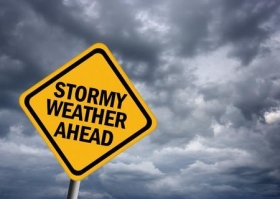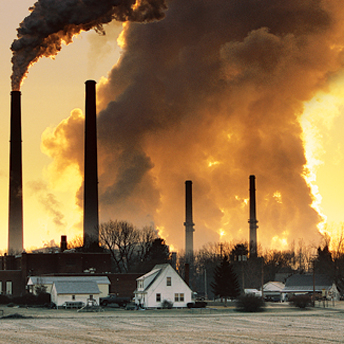64 F. average high on October 3.
76 F. high on October 3, 2016.
October 4, 2005: Widespread heavy rain falls in Minnesota. 4.61 inches of rain falls in the Minneapolis area, 3.42 inches is recorded in St. Cloud, 2.28 inches in Redwood Falls, 2.98 inches in New London, and 3.23 inches in Buffalo.
October 4, 1939: A storm dumps 2.16 inches of rain at Fairmont.
October 4, 1922: A record high of 89 is set in Minneapolis.
Ration of Sunshine Today - Plan B Saturday On Tap
Look at the bright side: nobody is uttering the D-word (drought). Lawns, fields and gardens are getting a good soaking before the ground freezes up in a month, give or take.
Well over a month's worth of rain arrived during the first 3 days of October. A wide swath of 2-4 inches fell from Worthington, Willmar and the Twin Cities to Brainerd and Duluth. Slop-tober gives way to a brilliant blue sky today with low 60s; a fine fall day.
The next annoying storm arrives with more rain Friday and Saturday. I'd bet an insignificant sum of money that Sunday will be the sunnier, drier, nicer day of the weekend to check out ripening fall foliage up north. A blustery cold front arrives next week and I can't rule out a frost over central Minnesota, but the immediate MSP metro should stay frost-free the next 2 weeks, and a milder-than-average October seems likely across the Upper Midwest.
Hurricane season is far from over; winds over the tropics are light and water temperatures are toasty. ECMWF guidance hints at Tropical Storm Nate in the Gulf of Mexico by the weekend. What can possibly go wrong?
Photo of Oberg Mountain courtesy of Praedictix meteorologist D.J. Kayser.
In Puerto Rico, Acute Shortages Plunge the Masses Into Survival Struggle. A story at Reuters provides some perspective on what people in Puerto Rico are facing on a daily basis: "...By
Saturday, 11 days after Hurricane Maria crippled this impoverished U.S.
territory, residents scrambled for all the staples of modern society –
food, water, fuel, medicine, currency – in a grinding survival struggle
that has gripped Puerto Ricans across social classes. For days now,
residents have awoken each morning to decide which lifeline they should
pursue: gasoline at the few open stations, food and bottled water at the
few grocery stores with fuel for generators, or scarce cash at the few
operating banks or ATMs. The pursuit of just one of these essentials can
consume an entire day – if the mission succeeds at all – as hordes of
increasingly desperate residents wait in 12-hour lines..."
September is the Strongest Hurricane Month Ever Recorded - Probably. A story at The Atlantic explains the caveat: "Harvey, Irma, Jose, Katia, and Maria. Over the past 30 days, some of the strongest hurricanes ever recorded in the Atlantic Ocean have prompted a diluvial flood, a mass migration, and an ongoing humanitarian crisis in Puerto Rico. It can feel like there’s little precedent for so many hurricanes in so short a time. In fact, there isn’t—at least within living memory. According to early estimates, September 2017 is already the most energetic month for hurricanes in the Atlantic Ocean ever recorded, even though the month is not yet over. The month’s accumulated cyclone-energy index of 155.4 breaks the previous record of 155.0, set in September 2004..."
Image credit: "The eye of Hurricane Jose over the open Atlantic Ocean, as captured by the Sentinel-2A satellite on September 9."
September Was a Hellish Month for Hurricanes. What Will October Bring? USA TODAY provides some perspective: "...There
is no question that this is already going to be one of the costliest
Atlantic hurricane seasons on record — and we’re only in September,"
said meteorologist Steve Bowen
of global reinsurance firm Aon Benfield. "Regardless of where the final
numbers settle, this season is one which will be remembered for a very
long time." Final cost estimates from this season won't be available
until early next year, said Brady Philips, spokesman for the National
Oceanic and Atmospheric Administration. For now, that leaves the 2005
Atlantic hurricane season, which featured monsters such as Katrina, Rita
and Wilma, as the costliest hurricane season for the U.S., with an
estimated economic toll of $211 billion, Bowen said..."
Their Island Homes Wiped Away in the Hurricanes, Caribbean Residents Wonder: Should We Go Back? Here's a clip from The Washington Post: "...In this, the cruelest season of storms that anyone alive has known, entire islands, such as Barbuda, have been wiped clear. There’s no power across Puerto Rico, and it probably won’t fully return for months. Dominica is devastated, with no commerce and hardly any usable homes. St. John and St. Martin — playgrounds for the affluent and homelands for the descendants of slaves, adventurers and colonizers — have been boomeranged back to a time before luxury resorts and timeshare condos. The storms pushed the islands back to the primitive, basic state that made the sandbars of the Caribbean so alluring to European empires, pirates and tourists for half a millennium. Investors, governments, visitors and the people who have called these islands home for generations now wonder: Has something elemental changed? Might paradise turn uninhabitable? Is it time to go?..."
Photo credit: "A Red Cross crew accompanies Peter Cuffy and his wife, Jenita Cuffy, as they walk through Codrington, their town on the island of Barbuda, in the aftermath of Hurricane Irma. Their home is among the many damaged by the storm." (Salwan Georges/The Washington Post).
European Tornadoes Are Real - And Their Threat is Underestimated. Here's an excerpt from Business Insider: "It is often assumed that tornadoes do not occur in Europe and that they are a weather phenomena specific to the United States. But this is far from true. Not only do tornadoes strike in Europe – they do millions of pounds worth of damage, cause serious injuries and even lead to fatalities. Despite these facts they are still perceived as a curiosity and as a result their threat is underestimated. Tornadoes have not always been overlooked in Europe and many natural philosophers and scientists have proposed theories about their formation and impact..."
File photo credit: Kelly DeLay
Do You Need to Warm Up More If Working Out in Cold Weather? The short answer appears to be yes. Here's a clip from Men's Fitness: "The warmup also prepares the cardiovascular and metabolic systems to deliver blood and oxygen to the working tissues.” Also, warming up before practice—specifically 20 minutes of strength, balance, plyometric, and agility warmup—reduces injury risk, according to a 2011 study from Northwestern University on almost 1,500 high school athletes. Research has also shown that warming up can improve your on-field execution—a meta-analysis of 32 studies done before 2010 showed that warming up before sports can boost performance by 79%..."


What Really Comes Out of an Airplane? Contrails, Not Chemtrails. Amen. Capital Weather Gang explains: "It’s tough to go outside nowadays without seeing scores of lines in the skies. They trail behind airplanes, forming by the dozen in regimes of heavy air traffic. Some spread out into a wispy veil that blankets the sky, whereas others linger for what seems like a very long time. Controversy has prompted speculation that these aircraft-chasing clouds may be a harmful mixture of chemicals sprayed to influence humans behavior and to modify the weather, sometimes referred to as “chemtrails”. But is there any truth to this theory? Nope. Not a bit. Period. No need to don a tin-foil hat! “Contrails,” as the lines are aptly-called, are a man-made cloud that forms under otherwise ordinary environmental conditions. The underlying physical processes are the same as in cases involving any other clouds; the only difference is what mechanism starts them forming..."
Image credit: "This NASA image, captured on board the International Space Staion (ISS) on April 6, 2013, shows contrails from jet traffic over San Francisco." (Chris Hadfield/NASA/AFP PHOTO)
Death of Gas and Diesel Begins as GM Announced Plans for "All-Electric Future". The Washington Post reports: "After nearly a century of building vehicles powered by fossil fuels, General Motors — one of the world’s largest automakers — announced Monday that the end of GM producing internal combustion engines is fast approaching. The acceleration to an all-electric future will begin almost immediately, with GM releasing two new electric models next year and an additional 18 by 2023. At a media event at GM’s technical campus in Warren, Mich., on Monday, Mark Reuss, the company’s chief of global product development, said the transition will take time, but the course has been set. “General Motors believes in an all-electric future,” Reuss said. “Although that future won’t happen overnight, GM is committed to driving increased usage and acceptance of electric vehicles...”
Photo credit: "A Chevrolet Bolt is ringed by electric and fuel cell vehicles covered by tarps. On Oct. 2, General Motors announced that it will produce two new electric models on the Bolt underpinnings in the next 18 months and 20 electric and hydrogen fuel cell vehicles by 2023." (General Motors/AP)
Photo credit: "The FBI didn't just target college basketball coaches. It went after a high-level apparel executive." AP Photo/Bebeto Matthews.

TODAY: Sunny and spectacular. Winds: W 7-12. High: 63
WEDNESDAY NIGHT: Mostly clear and cool. Low: 46
THURSDAY: Less sun, showers far southern MN. Winds: SW 3-8. High: 62
FRIDAY: Another surge of rain likely. Winds: NE 8-13. Wake-up: 52. High: 61
SATURDAY: Showers linger, breezy and cool. Winds: SW 8-13. Wake-up: 54. High: 62
SUNDAY: Partly sunny, nicer day of the weekend. Winds: NW 5-10. Wake-up: 49. High: 67
MONDAY: Mostly cloudy, cooler breeze kicks in. Winds: NW 8-13. Wake-up: 48. High: 58
TUESDAY: More clouds than sun, late shower? Winds: W 8-13. Wake-up: 42. High: 53
Climate Stories...
Forget the Paris Agreement. The Real Solution to Climate Change is the U.S. Tax Code. The Washington Post has a worthy read; here's an excerpt of the Op-Ed: "...Those tax breaks and other subsidies don’t just help the industry a little bit. In many cases, they determine whether it’s even worth drilling in the first place, according to a study earlier this year from the Stockholm Environment Institute, a nonprofit research organization. Without federal and state subsidies, nearly half of U.S. oil production — about 45 percent — would be unprofitable at current prices, the researchers found. So, unless oil prices go rocketing up, reducing or eliminating those subsidies would likely lead to a significant reduction in oil production over time. In other words, tax reform can help fight climate change — just not the kind of tax reform Trump and Republicans are proposing..."
Photo credit: "President Trump delivers remarks on his proposed changes to the U.S. tax code during an event with energy workers at the Andeavor Refinery in Mandan, N.D." (Jonathan Ernst/Reuters).
Volcanic Eruptions Can Cool the Planet, But They Won't Save Us from Climate Change. Newsweek has the story: "...A new paper in the journal Nature Climate Change attempts to solve the puzzle by modeling 60 different volcano scenarios and how they will impact climate. The results suggest that eruptions will likely play a role in modulating climate change over the next hundred years. But there's nOKo reason to expect the impact will be enough to neutralize our carbon emissions. Large volcanic eruptions can cool the planet because they release aerosols, tiny particles of ash and chemicals. Aerosols can reflect some sunlight away themselves, and they also act as the seeds around which clouds—which can also bounce sunlight away from Earth's surface—grow..."

Catholic Church to Make Record Divestment from Fossil Fuels. The Guardian explains: "More than 40 Catholic institutions are to announce the largest ever faith-based divestment from fossil fuels, on the anniversary of the death of St Francis of Assisi. The sum involved has not been disclosed but the volume of divesting groups is four times higher than a previous church record, and adds to a global divestment movement, led by investors worth $5.5tn. Christiana Figueres, the former UN climate chief who helped negotiate the Paris climate agreement, hailed Tuesday’s move as “a further sign we are on the way to achieving our collective mission”. She said: “I hope we will see more leaders like these 40 Catholic institutions commit, because while this decision makes smart financial sense, acting collectively to deliver a better future for everybody is also our moral imperative...”
How Climate Change Could Affect Your Morning Coffee. Please, not the coffee. Here's a clip from Wisconsin Public Radio: "Coffee
plants grow best in cool, mountainous regions. And, like many crops,
coffee depends on pollinators like bees and wasps in order to thrive.
The latest research says that over time, climate change could cause
major changes in land that's suitable for growing coffee and other
crops, as well as changes in the habitats and food sources of
pollinators. Many studies have suggested a drastic decline in land
suitable for growing coffee in the future, according to Pablo Imbach, an
agronomist with the International Center for Agriculture and the lead author of one such study..."
Photo credit: Coffee Management Services (CC BY 2.0)
Photo credit: "A resident bailed water from a flooded home yesterday in the aftermath of Hurricane Maria in Cataño, Puerto Rico. A week after the storm, many are still waiting for help." Carlos Giusti/Associated Press.
Costs of Climate Change: Early Estimate for Hurricanes, Fires Reaches $300 Billion. Who will ultimately pay for this? We - the people. Here's an excerpt from InsideClimate News: "The devastation from hurricanes Harvey, Irma and Maria—plus dozens of wildfires that raged across the West in early August—could result in the costliest string of weather events in U.S. history, according to a new report. Over the course of a few weeks, the hurricanes and wildfires left a trail of damage that could add up to nearly $300 billion, according to early estimates from the authors of "The Economic Case for Climate Action in the United States," a report released on Wednesday by the nonprofit Universal Ecological Fund. If they're right, the cost of the damage would be equivalent to nearly half the president's proposed 2018 budget for the Department of Defense. "The evidence is undeniable. These recent extreme weather events are a continuation of a three-decades trend of increasing numbers, intensities and costs of severe storms, hurricanes, flooding, droughts and wildfires," said report co-author Robert Watson, a former chair of the Intergovernmental Panel on Climate Change..."
Hurricane Harvey file photo of Houston: DoubleHorn Photography.
Cities Are Leading the Way on Climate Action. A story at TheHill explains: "...In California, cities are following Santa Monica’s lead in requiring all new homes be zero emissions. Even better, all new commercial buildings in the state will be zero emissions by 2030 — a big deal since buildings are generally the largest single carbon source in cities. Another major source is transportation. Here we see another set of solutions. This includes bike deliveries in Germany that eliminate idling delivery trucks fouling the air and taking up space. It’s mass transit investments and electric busses in L.A., a carbon neutral transportation system in Vancouver by 2020 and the phase out of gas engines in Beijing. Going a level deeper into infrastructure, some cities are cutting off fossil fuels at the source, like Portland and Seattle’s decision to prevent any new or expanded fossil fuel infrastructure. No new pipelines, port facilities or rail lines to ship out fossil fuels, and no new power plants to burn them..."
No comments:
Post a Comment